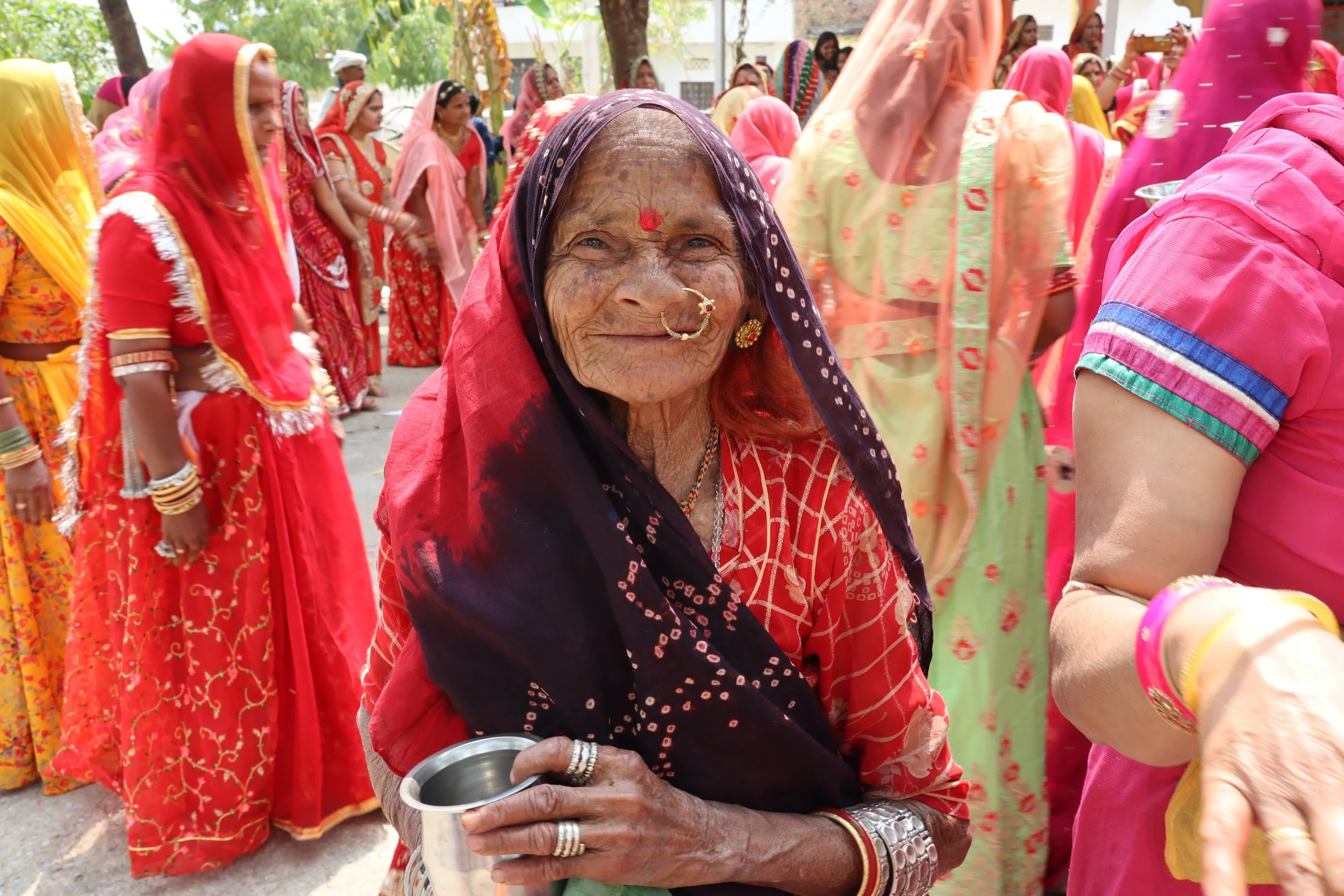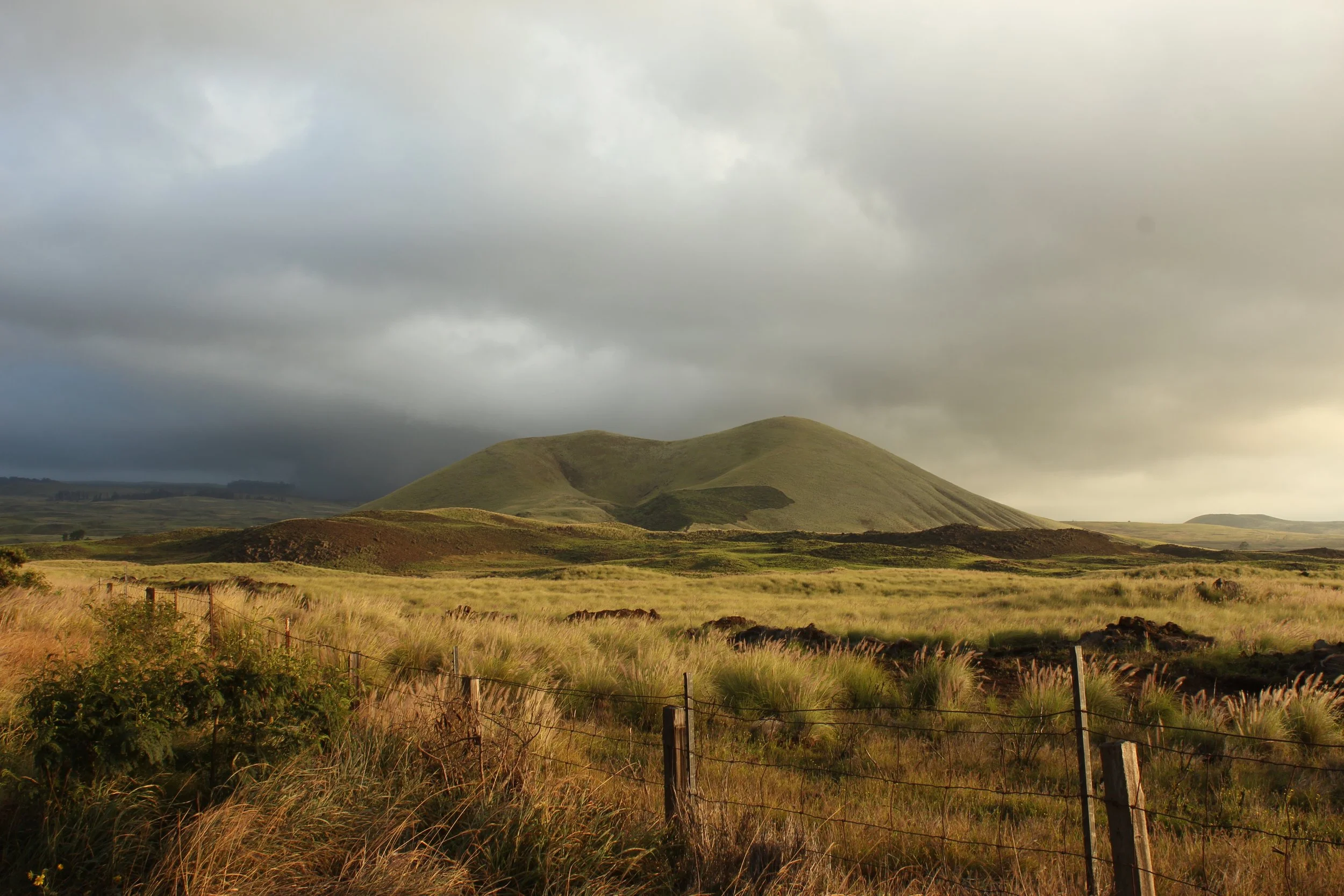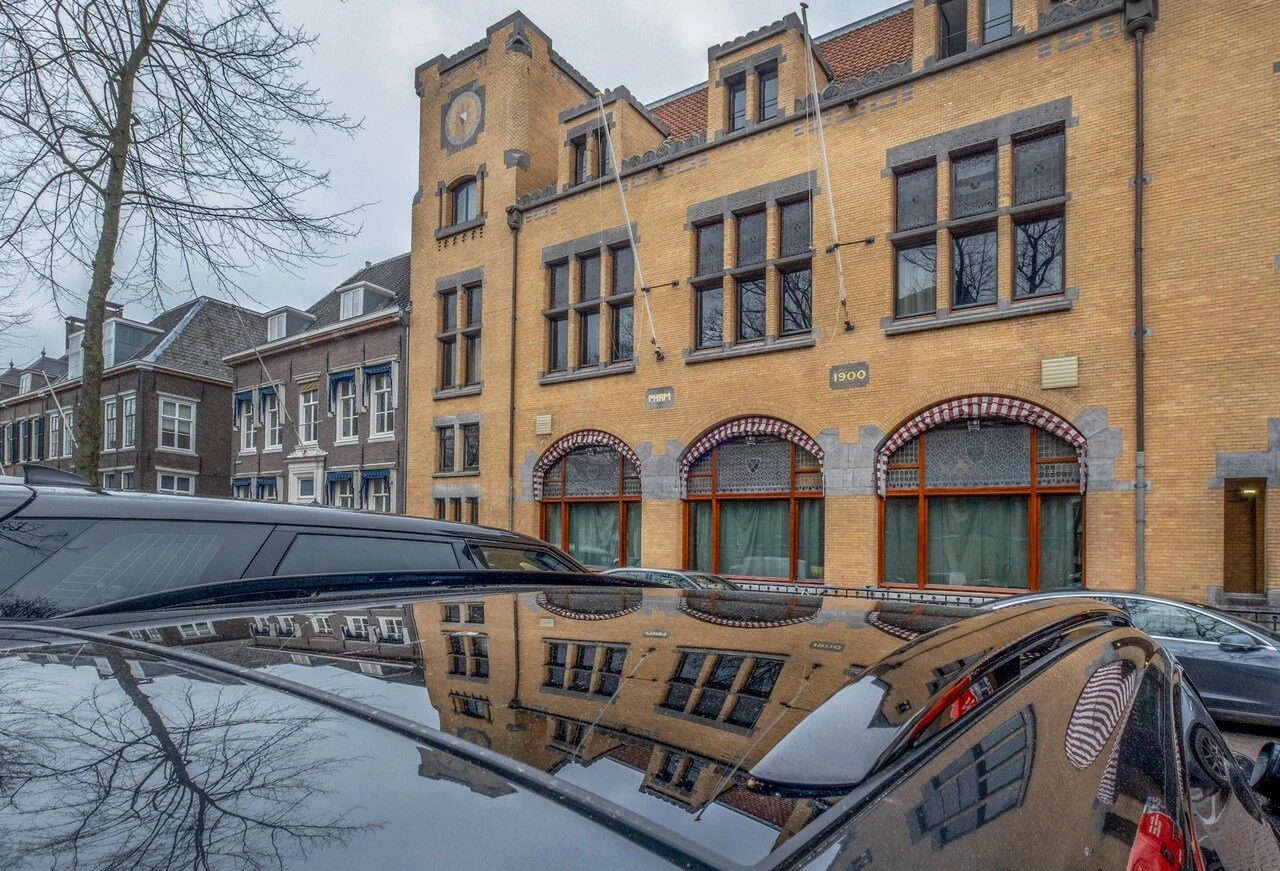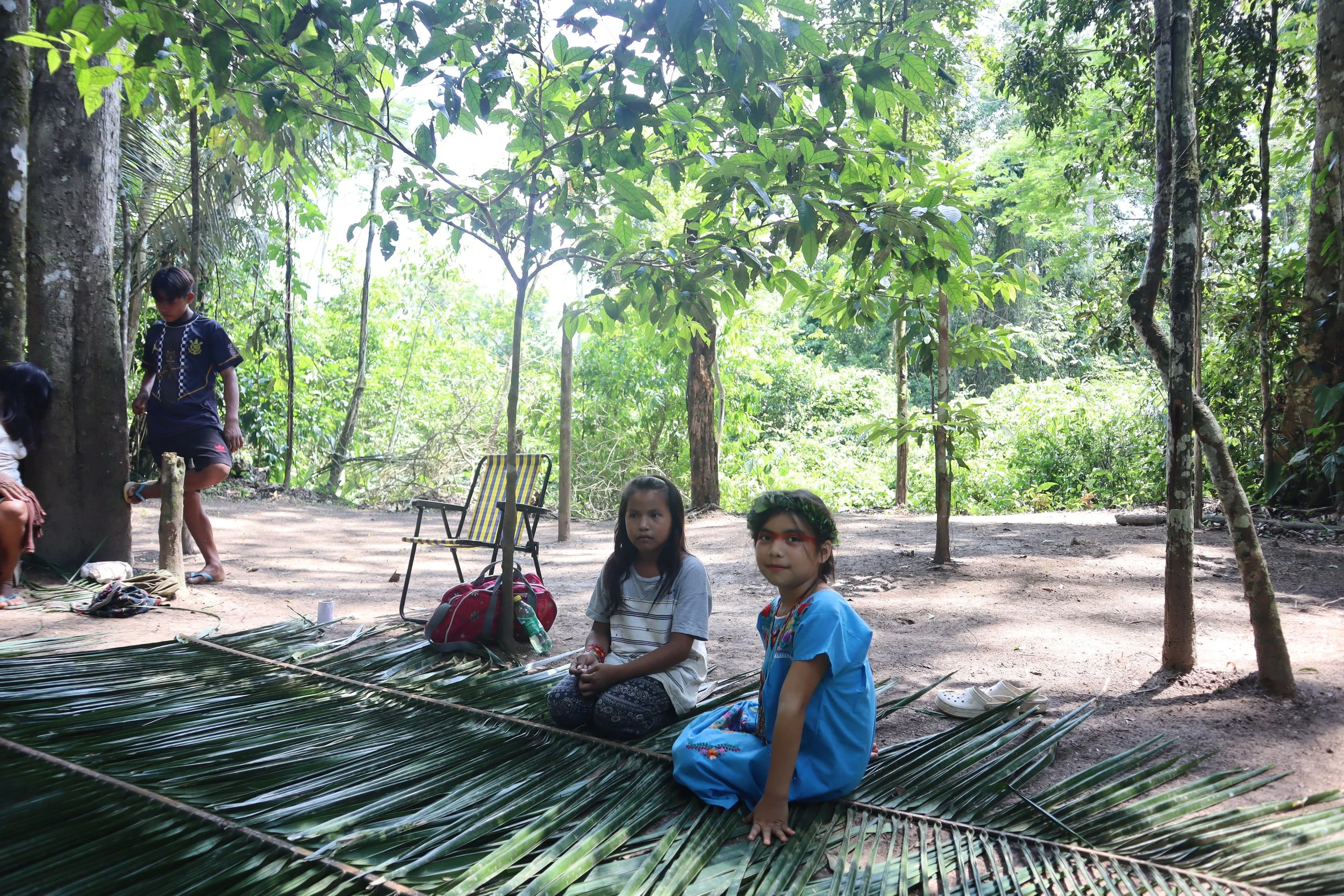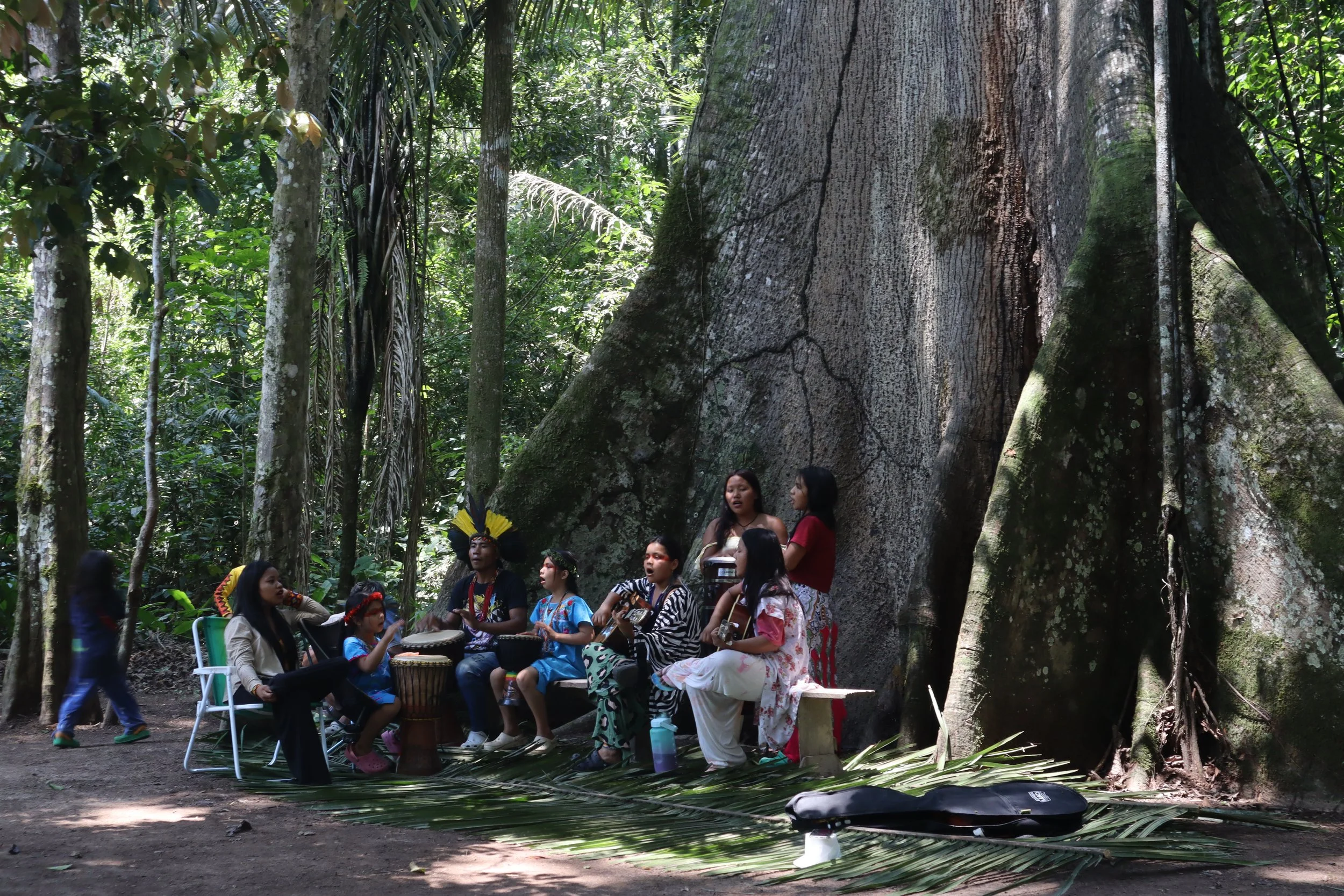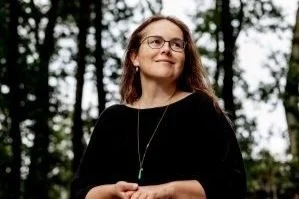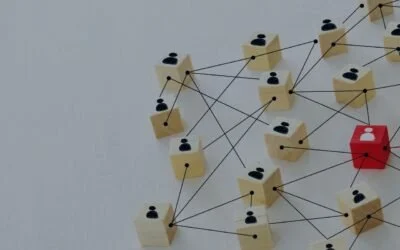
Schrijven
Let op: Avatar is geen fictie, het gaat over ons
Pas geleden heb ik Avatar: The Way of Water gezien. Het vervolg op Avatar uit 2009 vertelt het verhaal van de oorspronkelijke Na’vi op de planeet Pandora die opnieuw wordt aangevallen door mensen van Aarde, ‘sky people’. De Na’vi leven vanuit een diepe verbinding met alles op hun planeet. Het gaat de ‘sky people’ echter niet om deze waardevolle levensfilosofie, maar om waardevolle grondstoffen. De aarde is op en er is een nieuwe nodig.
Deze film raakte me diep, voornamelijk buiten de fictieve storyline om: hoe de dorpen van de oorspronkelijke bewoners van de planeet Pandora in de fik werden gestoken, hoe bossen werden vernietigd, hoe ze op (diep intelligente) zeewezens jaagden omwille van een stofje dat veroudering stopt – waar leven mensen voor als ze hun planeet laten sterven en een nieuwe willen koloniseren om er precies hetzelfde mee te doen?
Alles draaide om geld en werd opgelost met geweld, zonder enig respect. Het komt me zo bekend voor. Het raakte me nog meer dat toen de aftiteling kwam en de zaal licht werd en ik naar enige erkenning zocht van de oorspronkelijke bewoners op onze aarde over wie dit verhaal volgens mij eigenlijk gaat, ik achter me iemand hoorde zeggen: „Ja, leuke film.”
Dit was geen leuke film. Dit was geen mooie film. Dit was zelfs geen krachtige film – iets wat hij in zoveel opzichten had kunnen zijn. Dit was een geanimeerde documentaire die de geschiedenis op onze aarde vertelt alsof het in een verre toekomst op een verre planeet ligt. […]
Doel:
Publicatie in NRC
Type:
Opiniestuk krant
Datum van publicatie:
13 januari 2023
Recent gepubliceerd en verwacht (NL & ENG)
Type: Persoonlijk essay
Doel: Publicatie binnen de categorie ‘Philosopher Abroad’ in Filosofie Magazine Splijtstof
Gepubliceerd op 28 december 2023
In Luang Prabang, Laos, I first learned that the word philosophy does not have a universal meaning. I was in Luang Prabang for an internship for about five weeks in 2019. During this time, I regularly visited a center where travelers, expats and English-speakers went to speak with young locals. The purpose of the center was for these young people to practice their English free of charge and at the same time for everyone to engage in a cultural exchange through conversations. Every time I went to this center I discovered new things – both about the people I was speaking with, the culture I was immersing myself in and about myself.
During the first few visits I learned about the different possible interpretations of the word philosophy. When asked what I studied, I always answered Philosophy and Cultural Anthropology (I was doing a double bachelor’s at Radboud University at the time). Most people that I spoke with immediately passed me the question ‘What is your philosophy of life?’ Every time I would stare at them blankly. I sort of grasped what they were asking, but I did not understand it completely. I asked them several times, but it was only through hearing other people’s philosophy of life that I came to understand – over time – what it entailed. These people referred to philosophy as a way of living, as a practice or process that is constantly in development.
[…]
Philosophies of Life
Type: Academisch essay
Doel: Publicatie Filosofie Magazine Splijtstof
Gepubliceeerd in mei 2024
Like Creation stories everywhere, cosmologies are a source of identity and orientation to the world. We are inevitably shaped by them no matter how distant they may be from our consciousness. One story leads to the generous embrace of the living world, the other to banishment. One woman is our ancestral gardener, a cocreator of the good green world that would be the home of her descendants. The other was an exile, just passing through an alien world on a rough road to her real home in heaven. And then they met – the offspring of Skywoman and the children of Eve – and the land around us bears the scars of that meeting. (Kimmerer 2020, 7)
In the first chapter of Braiding Sweetgrass: Indigenous Wisdom, Scientific Knowledge and the Teachings of Plants, Wall Kimmerer (2020), an Anishinabekwe¹ plant scientist from Eastern Canada, tells the Creation story that is shared by the Original Peoples throughout the Great Lakes in present day North America. In the story a woman falls from the skies and is caught by geese. Animals then provide her with mud, and a turtle lends his back for land to be cultivated on. The ‘Skywoman’ gifts a handful of fruits, plants, and seeds for the mud to grow into land. This is how Turtle Island is born. As the quote above shows, the story of Skywoman expresses a very different cosmology than the Christian Creation story.
Creation stories express cosmologies in which history, identity, language, land base, and beliefs all connect, secure, and regulate one’s orientation to the natural world (Salmón 2000, 1327-1332). Humans’ orientation to the natural world is of particular importance when looking at the ecological crisis. The ecological crisis has not been caused by all humans, but by certain exploitative and oppressive systems in which humans relate to the natural world in a certain way. As an alternative to this exploitative and oppressive relation, this paper seeks to connect the wider decolonial project to ecological and environmentalist discourses by looking at different conceptualizations of, and cosmological relationships to the natural world as reflected in Indigenous languages.
[…]
Towards a Decolonial Ecology: Indigenous Conceptualizations of, and Cosmological Relationships to the Natural World
Type: Essay
Doel: Elk jaar vraagt beste-id.nl wetenschappers, kunstenaars en schrijvers om een jaarlijkse vraag te antwoorden. In 2023 was dat ‘Wat is uw droomproject?’
Gepubliceerd op beste-id.nl op 16 december 2023
Op zoek naar gedeelde waarden en ervaringen, en ontdekken waar de verschillen zich bevinden tussen verschillende wereldbeelden
Al sinds ik jong ben, ben ik gefascineerd door mensen en hoe ze zich relateren tot zichzelf, tot elkaar en tot hun omgeving. Ik ontmoet daarom graag nieuwe mensen en luister naar hun verhalen en ik ervaar graag (voor mij) nieuwe culturen, denk- en leefwijzen. Middels mijn vakgebieden, filosofie en culturele antropologie, en mijn reizen heb ik geleerd hoeveel verschillende ideeën er bestaan over de positie van mensen in de wereld. Deze ontologieën, dat wil zeggen filosofische ideeën over het zijn, bepalen in grote mate hoe we met de wereld omgaan en komen bijvoorbeeld naar voren in verhalen, identiteit, taal en spiritualiteit.
In haar boek Braiding Sweetgrass: Indigenous Wisdom, Scientific Knowledge and the Teachings of Plants, schrijft Anishinabekwe plantwetenschapper Wall Kimmerer (2020) bijvoorbeeld het scheppingsverhaal dat wordt gedeeld door Inheemse Bewoners die leven bij de Grote Meren in het huidige Noord-Amerika. In het scheppingsverhaal daalt een vrouw neer op aarde vanuit de lucht. Daar wordt ze opgevangen door ganzen die haar boven het water houden. Om de beurt gaan omringende waterdieren op zoek naar modder in het water dat als basis kan dienen voor de ‘skywoman’ om op te leven. Een schildpad leent uiteindelijk diens rug aan ‘skywoman’ om de modder op te plaatsen en zelf geeft ze een handvol fruit, planten en zaden voor de modder om te groeien tot het land dat de betreffende Inheemse Bewoners nu ‘Turtle Island’ noemen.
[…]
Documentaireserie over relaties met land, natuur en spiritualiteit
Type: Artikel lokaal en biologisch eten
Purpose: Publicatie MaatschapWij.nl
Gepubliceerd op 24 mei 2024
Spelende kinderen en gezellig geklets vullen de moestuin. Het is de open middag van Stadsboer Jelle in Nijmegen, waar ik wekelijks mijn groente afhaal. Het centrum van de gezelligheid bevindt zich naast de kas waar een aantal stoelen en kratten zijn opgesteld. Enkele mensen staan om een tafel waarop boeken liggen: Het Verborgen Leven van Bomen van Peter Wohlleben, Braiding Sweetgrass van Robin W. Kimmerer en Het Bodemvoedselweb: alle kleine beestjes helpen van Jeff Lowenfels – Jelle’s grote inspiratie vertelt hij later. Binnen in het schuurtje legt Jelle aan wat bezoekers uit dat er koffie en thee is en dat we limonade kunnen maken. Als ik met een beker limonade en een zelfgebakken koekje naar buiten loop, zie ik volwassenen en kinderen met pen en papier zoekend door het veld lopen. Ze zijn begonnen aan de gewassen-speurtocht.
Normaalgesproken als ik dit terrein betreed, loop ik gelijk naar de kast om mijn dagverse groentepakket op te halen. Elke week bekijk ik vol nieuwsgierigheid welke groente er in het pakket zitten voor ik ze in mijn boodschappentas laad. De namen van de voor mij soms onbekende groenten staan wekelijks op de website. Vandaag ben ik er echter niet om groenten op te halen, maar om meer te leren over de tuin waar mijn groenten vandaan komen. Op de open middag vertelt Jelle wat over de staat van de tuin, de tuinder en de toekomst en het sociale betaalsysteem.
[…]
Lekker, lokaal, sociaalverantwoord en vers eten: bij deze initiatieven kan het
Type: Academisch essay
Doel: Filosofie Magazine Splijtstof van de Radboud Universiteit
Gepubliceerd in Lente Editie Splijtstof 2023
One of the most unexpected but gravest pains I have perhaps experienced in this lifetime thus far is when a piece of music got, according to me, violently interrupted by applause. The musical performance consisted of a group of people playing large drums. The deep drumming sounds drilled through my bones, and when the last drum had sounded, I was caught off guard by the audience around me that broke out into a loud applause. I remember literally screaming ‘nooo, what did you do’, but no one else seemed to be as bothered as I was. For me, there was a silence needed after the drumming. The frequencies of the drums were still vibrating in my bones. The silence afterwards was part of the piece of music, it was a critical part necessary to process the intensity that I had just experienced. Until this day I grieve that experience that got ripped out of my body, yet at the same time never had a chance to leave it or calmly die out. It may sound a bit dramatic, but I am sure that there are people that recognize the violation of a piece of music because it got interrupted by applause or screaming before the last notes had sounded, or before a necessary silence sounded. To what extent does silence, as in the absence of played notes, form a part of a music piece? Silences during a music piece are an integral part, there is little ambiguity about that, but how about after a music piece ends?
The question of when and how an artwork is completed is one that various thinkers have written about and forms part of the wider question of what art is. What remains understudied, however, is the role the various senses might have in answering the question of where an artwork begins and where it ends. Based on the five senses, it might seem clear where an artwork begins or ends – a music piece starts with the first sound and ends with the last sound, a painting begins when something becomes visible and ends when the visible object no longer changes, or the painting begins where you can physically touch the canvas and ends where that canvas physically stops for example. If you would regard culinary practices as an artwork, you could say the same for taste and smell. However, these senses do not account for the anecdote mentioned above, or for the fact that an artwork can be interpreted or experienced in various ways by different people. In that sense, an artwork can take different shapes for different people depending on the emotional experience or interpretation that the artwork evokes.
[…]
The becoming of art: A cocreative process
Columns (NL)
Type: Opiniestuk
Doel: Studie Culturele Antropologie en Ontwikkelingssociologie
Niet gepubliceerd
Toen ik bij een collega over feminisme begon, kwam er meteen een zucht. “Het gaat in Nederland toch harstikke goed met gelijkheid voor mannen en vrouwen? Een groter probleem is het klimaat.” Het blijkbaar beladen F-woord is echter weldegelijk nog relevant, juist als het gaat over de klimaatcrisis.
Feminisme gaat namelijk verder dan ongelijkheid tussen mannen en vrouwen. Het gaat over mannelijkheden en vrouwelijkheden. Dit zijn kenmerken die constant worden geconstrueerd en gereproduceerd in de samenleving. Het is interessant en uitermate nuttig om te kijken hoe deze kenmerken ingebed zitten in onze systemen. Zo is het huidige politieke systeem mannelijk om twee redenen die sterk het klimaatbeleid beïnvloeden.
Het belang van het F-woord voor de klimaatcrisis
Type: Opiniestuk krant
Doel: Publicatie NRC
Gepubliceerd in NRC op 15 maart 2023
„Waarom moeten studenten van nu gelijk hun handje ophouden zodra iets niet meezit? Ik heb vroeger nooit een beurs gehad, lenen was er niet bij. Een deel werd betaald door mijn ouders en een deel heb ik zelf verdiend. Door de tijd heen verandert er van alles aan de studiefinanciering. Elke generatie studenten heeft zijn eigen pechgeneratie. Nooit is er iemand voor gecompenseerd. Waarom zou dat nu wel zo moeten zijn?”
Of, in dezelfde trant: „Studiefinancieringsbeleid verandert nu eenmaal. We kunnen niet blijven compenseren, elke keer als dat verandert. Er vallen altijd mensen buiten de boot. Ik snap je frustratie, maar je gaat dit vaker meemaken. Het leven is nou eenmaal niet eerlijk.”
Dit soort commentaar kom ik regelmatig tegen als het gaat over het studiefinancieringsbeleid van de overheid en het lot van de zogeheten pechgeneratie. Wat we blijkbaar te weinig beseffen is dat het hier niet gaat om een ‘pechgeneratie’, maar om een grote groep die binnen hun eigen generatie keer op keer de dupe is van falend overheidsbeleid.
Wij zijn geen ‘pechgeneratie’ maar slachtoffers van een leenstelselaffaire
Type: Opiniestuk krant
Doel: Publicatie NRC
Gepubliceerd in NRC op 13 januari 2023
Pas geleden heb ik Avatar: The Way of Water gezien. Het vervolg op Avatar uit 2009 vertelt het verhaal van de oorspronkelijke Na’vi op de planeet Pandora die opnieuw wordt aangevallen door mensen van Aarde, ‘sky people’. De Na’vi leven vanuit een diepe verbinding met alles op hun planeet. Het gaat de ‘sky people’ echter niet om deze waardevolle levensfilosofie, maar om waardevolle grondstoffen. De aarde is op en er is een nieuwe nodig.
Deze film raakte me diep, voornamelijk buiten de fictieve storyline om: hoe de dorpen van de oorspronkelijke bewoners van de planeet Pandora in de fik werden gestoken, hoe bossen werden vernietigd, hoe ze op (diep intelligente) zeewezens jaagden omwille van een stofje dat veroudering stopt – waar leven mensen voor als ze hun planeet laten sterven en een nieuwe willen koloniseren om er precies hetzelfde mee te doen?
Alles draaide om geld en werd opgelost met geweld, zonder enig respect. Het komt me zo bekend voor. Het raakte me nog meer dat toen de aftiteling kwam en de zaal licht werd en ik naar enige erkenning zocht van de oorspronkelijke bewoners op onze aarde over wie dit verhaal volgens mij eigenlijk gaat, ik achter me iemand hoorde zeggen: „Ja, leuke film.”
Dit was geen leuke film. Dit was geen mooie film. Dit was zelfs geen krachtige film – iets wat hij in zoveel opzichten had kunnen zijn. Dit was een geanimeerde documentaire die de geschiedenis op onze aarde vertelt alsof het in een verre toekomst op een verre planeet ligt. […]
Let op: Avatar is geen fictie, het gaat over ons
Type: Opiniestuk krant
Doel: Publicatie Volkskrant
Gepubliceerd in de Volkskrant op 4 april 2024
Recent lekte er een zogeheten ‘bangalijst’ uit waarin vrouwelijke studenten van vrouwenvereniging UVSV met naam, persoons- en adresgegevens, en een seksuele beoordeling werden genoemd. De lijst is gemaakt door de leden van het Utrechtsch Studenten Corps (USC), allemaal mannen. Nog geen week geleden lekte opnieuw een ‘bangalijst’ over Utrechtse vrouwelijke studenten uit. Het eerste voorval lag pijnlijk dicht op de datum van Internationale Vrouwendag en bevestigt hoe het patriarchaat nog zeer aanwezig is in onze maatschappij.
Het patriarchaat, ofwel het sociale systeem waarin mannen meer rechten hebben dan vrouwen, ze op vrouwen neerkijken, tot object maken en onderdrukken, zonder dat daar enige vorm van represaille voor staat. Vooral dat laatste is belangrijk: meer dan de ‘bangalijsten’ zelf, is het grootste probleem hoe er op die lijst is gereageerd. Want daarin ligt namelijk de kans om dit patriarchale systeem te veranderen.
De Universiteit Utrecht (UU) en Hogeschool Utrecht (HU) hebben inmiddels sancties aangekondigd tegen USC, waaronder het intrekken van subsidie, het uitsluiten van vertegenwoordigers van de vereniging bij officiële gelegenheden van de UU en HU tot in ieder geval eind 2024, en het moeten maken van openbare excuses. Hoewel deze maatregelen een stap in de goede richting zijn, gaan ze niet ver genoeg.
[…]
Universiteit moet harder straffen en makers van bangalijsten schorsen
Travel blogposts & Travel stories (ENG)
Type: Blogpost
Doel: Blog
Gepubliceerd op 13 januari 2023
Indigenous languages have the power to inspire a closer connection to nature, they can make us see the world differently and hence inspire a closer connection to our natural environment – something that is necessary if we are to change the human behavior that has led to the ecological crisis. This blogpost is about the role of stories.
Stories express cultural values, traditions and philosophies of life that are related to the context people live in. The indigenous stories that I heard when I was staying with the Yawanawa last November always featured animals, plants, and other elements of the natural world as important characters or symbols. Some stories contained lessons about the origin of certain plants, traditions, or other phenomena. I for example heard stories about the origin of certain medicinal plants – ayahuasca, rapé, and chili pepper. Although I do recall these stories well enough to tell them here, I do remember that the origin stories of these plants always held knowledge on how the world as we know it came into being. One version of the origin story of Ayahuasca (there are several) for example told that earth as it is was already existing when the ayahuasca plants were gifted to it from the spirit world. Besides origin stories, there were also stories which I heard that contained lessons about what it is to be a good person, how to be respectful towards other people and towards the spiritual world.
Stories are often shared through songs. To give you an example, I learned that one of the first songs of the Yawanawa is called Kanarô, a type of bird. The song was adapted to the guitar by Shaneihu Yawanawa and Cacique Nixiwaka. As I was told in the village, kanarô is a storytelling about a longing (saudade in Portuguese, a word that is not directly translatable) for people far away. When you sing the song, you give your love to the bird and the bird can fly over to the people that are far away. When I was looking up the song to share it here, I found an additional explanation by Shaneihu Yawanawa who goes over the meaning of the song and its placement in the origin story of the Yawanawa. He adds that the kanarô can also bring your love to those on the other side. […]
The power of stories for solving the ecological crisis
Type: Call to action blogpost
Doel: Blog
Gepubliceerd op 13 juni 2023
[…]
Today in Brazil the rights and lives of Indigenous People's are once again in crisis. Brazil's Federal Congress fast tracked and passed bill PL 2903 (formerly known as PL 490), a law that "removes protections from the Amazon Rainforest by erasing the rights of indigenous peoples". According to a petition from Supporters for the Amazon it will also erase rights and cultures of Indigenous peoples from Brazilian history. The bill opens the doors to widespread deforestation by mining, logging, and agriculture industries. Yes, exactly like in Avatar. It is an assault on human rights and an existential threat to the critical ecosystem that sustains our livable planet.
The sequence to the first Avatar movie could have been a powerful tool in bringing about awareness for the crisis we are globally facing as the rights and culture of Indigenous people are being actively oppressed. And maybe it is not too late.
A much liked comment on TikTok last year was “How much I would give to live on Pandora”. But how much are we giving to protect our own Pandora? Pandora is closer than we think. And I mean closer even than the Brazilian rainforest. Many Indigenous peoples across the world hold a similar worldview as the fictive Na’vi. This movie shares a history that is still going on. The current crisis in Brazil testifies to that. To what extent we recognize that story and its urgency determines the future of this planet. […]
The current Indigenous crisis in Brazil is real life Avatar
Type: Travel advice blogpost
Doel: Blog
Gepubliceerd op 22 mei 2024
Nestled in the highlands of Guatemala, Xela — formally known as Quetzaltenango — is a destination brimming with cultural richness and natural beauty. Unfortunately, backpackers and travellers too often skip this city when travelling in Guatemala. However, whether you're an avid adventurer or a slow traveller seeking an immersive experience, Xela has something unique to offer. From Spanish language schools to traditional weaving classes and scenic hikes, this city invites you to explore its multifaceted charm at your own pace.
About Xela
Located about 200 kilometers west of Guatemala City, Xela sits at an altitude of 2,330 meters above sea level. This elevation gifts the city with a temperate climate, perfect for outdoor activities and finally giving you the opportunity to wear the sweater at the bottom of your backpack on refreshingly chilly evenings. With a population of approximately 150.000, Xela is the second-largest city in Guatemala, yet it maintains an authentic and small-town feel with a vibrant local culture.
[…]
Top Things to Do in Xela, Guatemala: A Slow Traveler's Guide
In this interview musician Raymond Brown talks about his life as a musician, his philosophy of life and the role music plays in it.
At the end of my stay in Hawai'i I interviewed Ray Brown, a musician that grew up and lives in Hawai'i. I met Ray on Soulday, a spiritual event on O'ahu. Ray has an inspiring view on how music and life are more than just connected: life is music, and we are all musicians. We just have to remember. He also describes music as a medicine that brings people together.
We are meant to make music together. That is the beautiful thing of the arts: it brings us together. We need more of that in the world, rather than things that divide us.
What does 'aloha' mean according to you?
Alo, as I understand it, is 'in the presence of' and ha is breath. So, aloha literally means in the presence of breath. This is also the essence of all meditation teachings. When we center and rest in that presence of breath. […]
Type: Interview blogpost
Doel: Blog
Gepubliceerd op 28 december 2022
The medicine of music
Type: Travel advice blogpost
Doel: Blog
Gepubliceerd op 18 juni 2024
Did you know there are only four green sand beaches in the world? Papakōlea beach Hawaiʿi (the Big Island) is one of them. Alongside a guide with essential tips to visit Papakōlea beach, I am sharing my experience of visiting this magical place.
Practical Information About Papakōlea Beach
How does a green sand beach get formed? A green sand beach comes into existence after a very rare volcanic eruption during which green olivine crystals are brought to the surface. Olivine is a mineral that can for example be found in natural volcanic rock. When these crystals interact with the cold ocean water, they shatter in tiny pieces thus creating sand. When you look up close it really feels like the sand is made of tiny shiny green diamonds!!! This is a rare phenomenon and thus there are only four (known) green beaches in the world.
[…]
Visit Papakōlea Beach on Hawaiʿi (the Big Island): One of Four Green Sand Beaches in the World
Interview artikelen (ENG)
Type: Interview for RE:NL
Doel: Deel van de serie ‘Teaching Economics: Academics Reflect’
Gepubliceerd op 19 mei 2022
….
As a researcher, what new theories do you think are increasing in importance? Or how have you seen the field changing in the past years?
Economics has been invaded by fields that had different insights in decision making such as psychology, cognitive sciences, and philosophy. On top of that a revolution has taken place thanks to experimental methods – The Sveriges Riksbank Prize in Economics Sciences 2019 that was awarded to Abijit Banerjee, Esther Duflo and Michael Kremer for their experimental approach to alleviating global poverty is what is attached to this revolution. Banerjee, Duflo and Kremer had sound knowledge of economics, but also a big interest in experimental methods. So they went to countries in the developing world to learn how to make education and healthcare systems better. The questions they asked were addressed in a cultural way in the field. This evidence-based approach to policy making, and this thorough methodological approach to dealing with data, including econometric methods, has revealed the painful aspect that we still give a lot of money to systems without knowing which impact that money has.
I am a quantitative researcher so I am used to working with data a lot, but I have worked closely with researchers using qualitative methods so I have learned to appreciate those as well, although I cannot use them. What strikes me is that there is a fear of over-quantifying the assessments we do. We have to keep asking what to assess because we might be assessing too many things while missing the most important ones. So to come back to your question, it is not a new theory, but I think that the use of experimental methods is increasing.
As a synthetic researcher (meaning I look at the problem and shop for theories that I need) I am reading a lot about the functioning of the brain and how we can understand it, for example from the perspective of computer scientists that analyze big data sets. Based on this literature I think that we will learn a lot more about human nature and decision making. Economics will be pressured to take in that new information and engage with it, especially as a starting point for our decision theories.
As I understand, interdisciplinarity is becoming even more important in the sense that more disciplines are involved with economics. Do you think that education is changing along?
My education is. I even have students that tell me they do not understand why I talk so much about brains in an economics course. I think having this broad background across sciences is important to be able to be a critical thinker these days.
…
Interview met Dr. Jana Vyrastekova
Type: Interview for RE:NL
Doel: Deel van de serie ‘Teaching Economics: Academics Reflect’
Gepubliceerd op 20 januari 2020
What subjects do you teach and why are they important?
I teach Economic Methodology, where the central question is “How can we analyze current economics from the perspective of philosophy of science, or sociology of science?” and History of Economics, reviewing the major ideas of past economists and the key intellectual contributions of economic science to understanding social life. I also teach a master course called Current Issues, in which students get five papers from different disciplines that they have to discuss and then write a critical summary on. I am also involved in Happiness Economics, an interdisciplinary course on understanding happiness beyond simple measures of well-being. Finally, I coordinate the course Current Debates and Issues in International Political Economy, a course given by both economists and political scientists.
How do you feel that the field of economics has changed in the past years? Or, how do you feel it is changing?
Economics is so big, there are many different processes happening. But one thing on which everyone agrees is that the role of theory in economics has receded in favor of empirical research (the so-called “empirical turn in economics”). The use of experiments (both in the lab and in the field) is allowing economists to say something about causal connections, which are always difficult to make in social sciences.
An important change in the economic profession that is slowly happening is the increasing presence of women. Female representation has been catastrophic especially compared to other social sciences, but there is a general trend of female researchers achieving more visibility. I expect more women entering the profession and more female Nobel prize winners. Furthermore, topics like household production, unequal exchange, invisible labor of women which are not reflected in statistical data are gaining due attention.
Where do you think change happens in the discipline? Where does it start?
It is very hard to change the discipline because of its hierarchical organization which is a product of a very deeply ingrained system of incentives. There is a huge amount of resources invested in economics as an academic discipline, and many ambitious people who want to excel in their field compete for those select places and resources. The more money, the more resources are invested, the more fierce the competition becomes. And then, as academics, they compete for positions, publications, or places at the top journals. It is an endless race in which what is publishable is much more important than what your interest is in.
…
Interview met Dr. Ivan Boldyrev
Copywriting & business blogposts (ENG)
Type: HVFC Trends on Fundraising Takeaway #3
Doel: HVFC Trends on Fundraising
Gepubliceerd in 2021
From the challenges on reporting-, financial management-, and increasing threshold criteria, and from the challenges on getting unearmarked funding and funding for overhead costs, another underlying trend comes to the surface about trust and accountability. Although accountability was mentioned by nearly all interviewees as very important and positive, interviewees often wished to see more trust from all parties.
Donors are getting more sophisticated, they have higher expectations. With that, accountability will definitely grow as well. I see this as a positive change, especially in the public sector. We are in the business of doing good and changing society, and donors, as part of our society, are changing as well. And accountability is very important.
Ani Manavyan, Fundraiser based in Los Angeles, California, USA
There is a lack of trust from donors, resulting in expenses being increasingly traced back. On the other side, there is also a lack of trust in the private sector approach on the side of the development organizations.
Importantly, it should not be trust or accountability, it should be trust and accountability.
STRIKING A BALANCE BETWEEN TRUST AND ACCOUNTABILITY
Type: HVFC Trends on Fundraising Takeaway #4
Doel: HVFC Trends on Fundraising
Gepubliceerd in 2021
Some of you noticed a shift from bilateral donors to a more economic approach to development cooperation. On the one hand, bilateral donors are increasingly asking for, or engaging in public-private partnerships. On the other hand, the private sector itself is growing as a donor as well. Collaboration between development organizations and the private sector thus becomes increasingly important. However, the fact that such partnerships and collaborations include very different entities can be experienced as challenging.
Why is it important to also focus on the private sector?
The increased national interest of development cooperation policies seems to be established by focusing more on the private sector. This trend is also supported by academic literature. In order to get funding from bilateral donors it is sometimes required to partner with the private sector.
Another reason for focusing on the private sector is that it has a lot more money than traditional donors have. This means that there is a lot to win in terms of funding from the private sector, including corporate companies and foundations.
In other words, the private sector is becoming an increasingly important player. Whereas some see this as a challenge, many are optimistic and see this trend as an opportunity for more economically sustainable development.
Many big donors have very specific partnership criteria. Involving diverse stakeholders brings different perspectives, which is important. However, it can be harder to pursue a proposal when such relationships are not solidified right away, especially given the timelines of some proposals.
Eve Aronson, co-founder of Fairspace
BUILDING STRONG RELATIONSHIPS FOR SUCCESSFUL PARTNERSHIPS
Type: HVFC Trends on Fundraising Takeaway #1
Doel: HVFC Trends on Fundraising
Gepubliceerd in 2021
Competition in the fundraising sector is becoming increasingly challenging to manage. Related to this, most of you find it challenging to identify new potential donors. This is especially the case amongst organizations with a budget below one million euros.
Why is the competition for funding getting fiercer?
Governments are drawing back from development cooperation. This means that there is less bilateral funding available. The competition for the bilateral funding that remains is therefore increasing.
Another reason for why competition for funding is getting fiercer is that organizations do not always have the resources to address large donors. These resources can be both in terms of time and money, but also in terms of the specific knowledge that is sometimes required to fill in proposals. The challenge of not having enough resources to address large donors is one that is primarily affecting smaller organizations (budget below one million euros)..
It is difficult to get into contact with these [larger] donors. Some have changed their policies so that they invite organizations to send in an application. This has made it more difficult to be proactive.
Jan van der Leest, Fundraiser at World Servants
OUTDOING YOUR GROWING COMPETITION IN THE FUNDRAISING LANDSCAPE
Type: HVFC Trends on Fundraising Takeaway #2
Doel: HVFC Trends on Fundraising
Gepubliceerd in 2021
Both survey respondents and interviewees emphasized the importance of unearmarked funding, especially to quickly act in unexpected situations such as with COVID-19. Unearmarked funding and funding for overhead costs ensure the sustainability of organizations and allow them to experiment and innovate. However, this funding is increasingly difficult to get. One interviewee mentioned that it is ‘not necessarily a bad thing because it shows that the sophistication level of the donor is growing. They have higher expectations from us’. But in the survey it was amongst the top three most experienced internal challenges.
Unearmarked funding and funding for overhead costs ensure the sustainability of organizations and allow them to experiment and innovate. However, this funding is increasingly difficult to get.
Why is the competition for funding getting fiercer?
Accountability and reporting are important, but it should not be excessive. Currently, most of you stated that trust and accountability is out of balance. Trust is a requirement for strong partnerships between the development cooperation-, the private- and the public sector. There is both a lack of trust on the side of bilateral donors, but also from development organizations in the private sector approach. As a result funding is being restrictively appointed to set purposes. In an interview, Ronald Visser mentioned that “donors increasingly want to trace back the overheads that they are funding, and are increasingly going for restricted funding” and describes this as “an alarming development.”
FINDING FUNDS FOR OVERHEAD AND UNEARMARKED FUNDING
Type: HVFC Trends on Fundraising Takeaway #5
Doel: HVFC Trends on Fundraising
Gepubliceerd in 2021
The COVID-19 pandemic causes economic uncertainty. Many development professionals expressed worries that COVID-19 and the corresponding (uncertain) economic situation might affect funding abilities from corporate, foundational and private donors. Some organizations have seen donations being put on hold. Moreover, as mentioned before, constantly changing measures as a consequence of COVID-19 make it more challenging to network with new potential partners and donors. Some in the sector however have a positive outlook on fundraising with COVID-19.
Why is COVID-19 challenging fundraising?
COVID-19’s impact on project implementation negatively influences abilities to network. Travel restrictions and work-at-home measures make it more difficult to meet people in person. Before and after online meetings, or during breaks, the screen often goes off whereas when meeting people in person this would be the moment for a coffee or a casual chat. Moreover, there are less fundraising events or other moments to meet many new people at the same time.
Usually, I rely on meetings with colleagues and acquaintances to help expand my network, and increase funding opportunities. So not being able to travel as a result of COVID has hit funding.
Gareth Davies, Executive Director at European Cleft Organization (ECO)
Another consequence of COVID-19 is that donors focus on stabilizing existing grantees. This makes it challenging to find new donors.
Moreover, some organizations experience a slow-down in project implementation. This can also make it more challenging to find new donors or start new projects.
FUNDRAISING DURING AND AFTER THE COVID-19 PANDEMIC
Type: HVFC Trends on Fundraising Takeaway #6
Doel: HVFC Trends on Fundraising
Gepubliceerd in 2021
The competition in the fundraising landscape is growing. This is even more so with the constantly changing COVID-19 situation which causes economic uncertainty. In order to outdo your growing competition, we at HVFC strongly believe in proactive fundraising. Proactive fundraising allows you to identify and build lasting relationships with donors that are relevant for your organization. Note however, that prior to taking a proactive approach to fundraising, what is even more fundamental is having a well-defined strategy. Even though no perceived challenges related to strategy emerged from our research, there was a clear trend in the interviews reflecting the power of having a well-defined strategy.
Why is having a solid fundraising strategy even more essential today?
As mentioned in takeaway #5, COVID-19 sharpens existing problems. This means that organizations that have a clearly formulated goal and a well-defined strategy can incorporate COVID-19 in their fundraising.
It is therefore essential for fundraising organizations to communicate their strategy, may it be when initiating partnerships with the private sector, or when submitting proposals to bilateral donors. It is also important for organizations to strongly position themselves in discussions with bilateral donors that are increasingly taking on a ‘development managerialism’ approach.
NGOs have to keep positioning themselves as independent [non-governmental] entities. NGOs should have their own strategy, a mission statement. If you do not know what you stand for, it becomes difficult to negotiate with a donor.
Ronald Visser, Head of Donor Relations at Solidaridad

